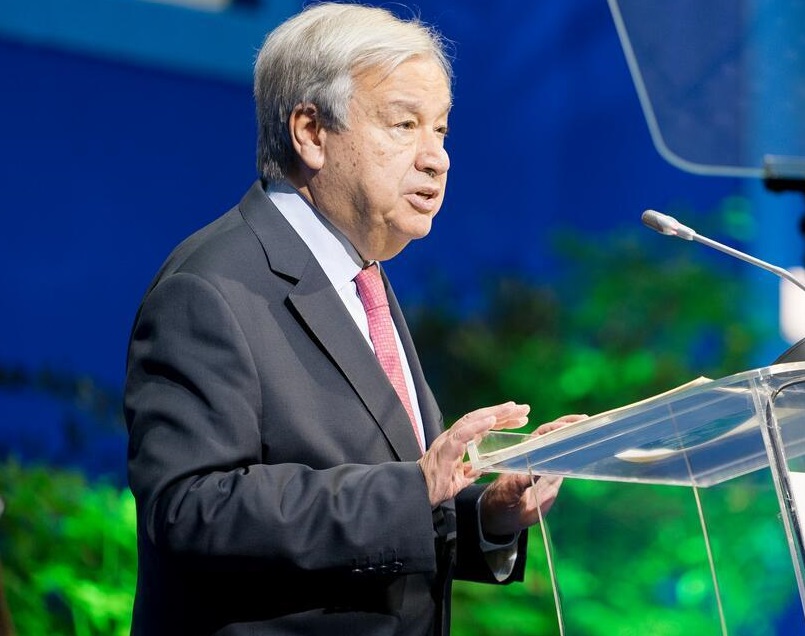
Photo: António Guterres [UN/Bajanpro]
Grave IPCC report recognises cities as central in the climate crisis
01 March 2022
by Sarah Wray
Human-induced climate change is causing dangerous and widespread disruption in nature and affecting the lives of billions of people around the world, with communities and ecosystems least able to cope being hardest hit. This is the conclusion of the latest Intergovernmental Panel on Climate Change (IPCC) report.
It presents a “dire warning” about the consequences of inaction and says that climate change is a “grave and mounting threat”. Some of the impacts of global warming are now “irreversible” according to the assessment, but there is a rapidly narrowing window of opportunity to avoid the very worst outcomes.
As a major source of emissions and with 68 percent of the world’s population expected to live in urban areas by 2050, the landmark report calls out cities as hotspots for the impacts and risks of the climate crisis, and also a crucial part of the solution.
It finds that human health, livelihoods and critical infrastructure such as energy and transportation systems are being increasingly affected by heatwaves, storms, drought and flooding, as well as slow-onset changes including sea-level rise.
“Together, growing urbanisation and climate change create complex risks, especially for those cities that already experience poorly planned urban growth, high levels of poverty and unemployment, and a lack of basic services,” said IPCC Working Group II Co-Chair Debra Roberts.
“But cities also provide opportunities for climate action – green buildings, reliable supplies of clean water and renewable energy, and sustainable transport systems that connect urban and rural areas can all lead to a more inclusive, fairer society.”
Adaptation
The Working Group II report is the second instalment of the IPCC’s Sixth Assessment Report, which will be completed this year. It was written by 270 scientists from 67 countries. In August, the first instalment concluded that the world is on course to reaching global warming of 1.5 degrees Celsius within the next two decades, breaching the ambition of the 2015 Paris Agreement, and that bold action is required to prevent this.
The latest report focuses on what this warming means for people, ecosystems and the planet.
António Guterres, the United Nations Secretary General, said: “I’ve seen many scientific reports in my time, but nothing like this. [This] IPCC report is an atlas of human suffering.”
However, he added that the report also shows that: “Investments in adaptation work.”
“Adaptation saves lives,” he said. “As climate impacts worsen – and they will – scaling up investments will be essential for survival. Adaptation and mitigation must be pursued with equal force and urgency.”
The report highlights nature’s potential not only to reduce climate risks but also to improve people’s lives. This includes restoring degraded ecosystems and conserving 30 to 50 percent of Earth’s land, freshwater and ocean habitats.
Feet to the wildfires
Mark Watts, Executive Director of climate action network C40 Cities, said: “This IPCC report must galvanise global leaders to put their shoulder to the wheel and do more to save our cities and to support and scale the adaptive climate actions C40 mayors are already taking. If global leaders sit on their hands and let our cities fail, we will all fail. There is no time to waste.”
Michael R. Bloomberg, the UN Secretary-General’s Special Envoy on Climate Ambition and Solutions and Founder of Bloomberg Philanthropies, commented: “The IPCC’s new report paints a devastating picture of the suffering and disruption that climate change is already causing for growing numbers of people around the world – and the growing costs we’re already paying for years of inaction and denial.
“It should cause leaders in the public and private sectors to take a hard look at what they’re doing right now to solve the problem and to protect the people and businesses they’re responsible for – and it will help the public to hold leaders’ feet to the wildfires. That means setting ambitious goals for cutting emissions in the next few years – not decades down the line – and backing up words with action.”








